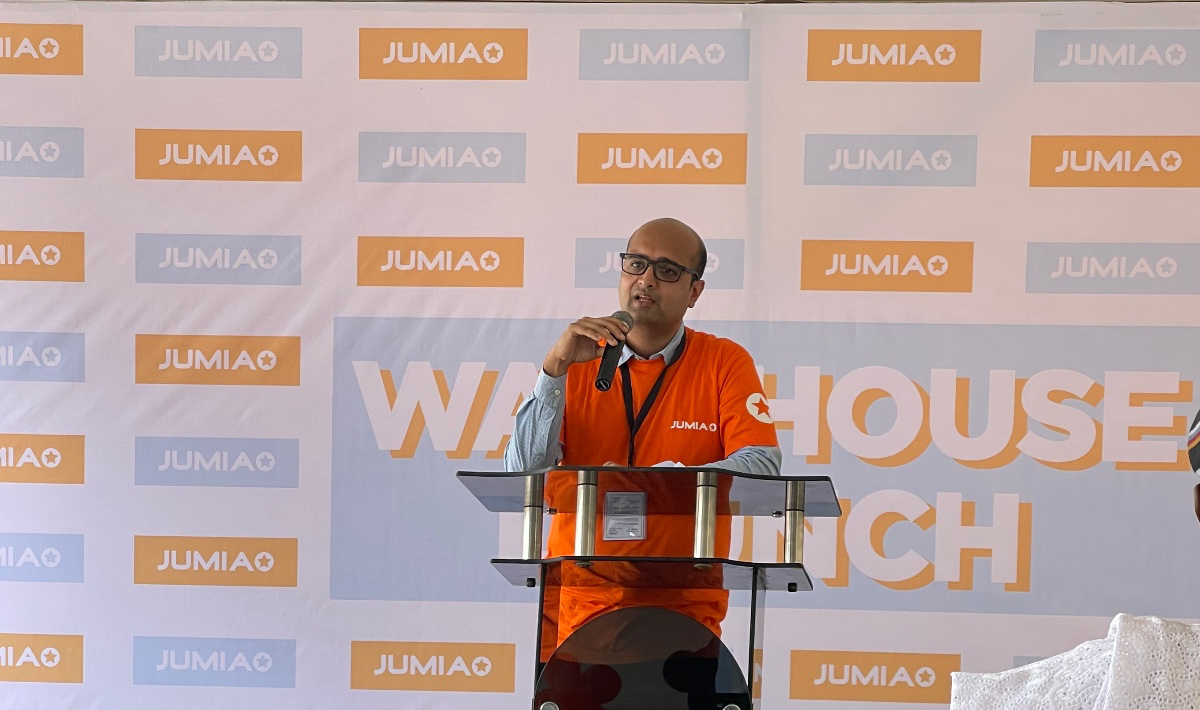Artificial intelligence (AI) has become a part of our daily lives in ways we might not even be aware of. It is changing our lives in ways that may be irreversible. Its effects are vast and varied, encompassing good progress and possible challenges.
AI technology dictates our daily activities, even to the extent of how we constantly use our devices. Our phones or laptops are often our first stop when we wake up everyday. It is automatic and essential to our decision-making, planning, and information-seeking. AI is getting merged with all of these.
Read also: OpenAI, Scale AI partners to advance AI technology
AI Optimizes Jobs, Leaving People Behind
The rise of AI is two-sided. While automating processes and increasing efficiency, technology also displaces workers, prompting concerns about widespread unemployment. This phenomenon, called “AI optimization,” is already affecting numerous businesses.
Formerly, a big electronics factory in Shenzhen, China, hummed with human labour. Working like well-oiled robots, thousands of workers constructed complicated circuit boards. Instead, an unnerving quiet replaced that rhythm in 2022. AI-powered robots replaced 2,000 assembly line workers.
AI promised faster, more precise assembly, increasing production and lowering costs, so the corporation chose it. The robots were efficient, accurate, and never needed breaks. Although the corporation welcomed its newfound competitive edge, the human cost was precise.
A single mother of two, Li Mei worked at the plant for five years. Her skilled fingers could assemble intricate parts after years of practice. Due to their uncanny perfection, the robots rendered her capabilities obsolete. Li Mei, like many others, was uprooted by technology and lost her job.
Though factory-specific, this narrative represents an increasing tendency across industries. AI-driven job displacement threatens retail cashiers replaced by self-checkout systems and travel agents replaced by AI-powered booking sites.
The impact goes beyond money. A person’s identity, purpose, and self-esteem are frequently lost when they lose their job. Li Mei found herself juggling motherhood and reskilling, unsure about her future.
An unavoidable march of technology must be supported by human sensitivity and a dedication to ensuring no one is left behind, as Li Mei and her colleagues demonstrate. Once we do so, we can use AI for good and create a future where technology enhances the human spirit.
Mei’s suggestion depicts the need for a collaborative approach to the use of AI, but in this era of the rapid evolution of AI, there are indications of more job cuts in coming months.
Jobs AI is Replacing and Why
Industry experts predict that layoffs will persist into 2024 as tech companies pour resources into AI and expand their workforce.
In case you were wondering, tracker layoffs.fyi reports that over 20,000 tech workers have lost their jobs thus far in 2024.
As Google continues to invest more in artificial intelligence, CEO Sundar Pichai has warned workers that they may lose their jobs this year. Google cut hundreds of jobs in January as part of an effort to streamline operations and concentrate on its “biggest product priorities.” The company is now playing catch-up with Microsoft, which has integrated ChatGPT into Bing search, forcing Google to fortify its search engine with artificial intelligence features.
According to Big Technology’s Alex Kantrowitz, companies are no longer in a zero interest rate environment. Businesses must now discover cost-cutting measures if they are to invest in this area. To offset the high costs of AI training and deployment, many companies are reducing their workforce.
Earlier this month, hundreds of workers from Amazon’s video-streaming and studio divisions were let go. The company has been heavily investing in artificial intelligence. The company’s Audible audiobook division and Twitch live-streaming platform both had layoffs.
On January 19, the cloud service arm of the e-commerce behemoth Amazon announced plans to invest 2.26 trillion yen ($15.24 billion) in Japan by 2027 to enhance the country’s cloud computing infrastructure, an essential component of artificial intelligence services.
The tech industry isn’t the only one planning layoffs as it shifts its focus to AI-driven products and services.
According to a regulatory filing last week, Vroom, an online used-car marketplace based in the United States, intends to close its e-commerce and used-vehicle dealership operations and concentrate on automotive financing and artificial intelligence services, resulting in the loss of approximately 800 jobs.
As the language-learning app Duolingo shifts towards content creation powered by artificial intelligence, rumours circulated earlier this year claiming the company would lay off 10% of its contractors.
As a result of global macroeconomic headwinds like high interest and inflation rates, consumers drew back on spending in 2022 and 2023, leading to mass layoffs. The layoffs may continue for some time.
The Transformative Potentials of AI in African Tech Advancement
In recent years, Africa has emerged as a hotbed of innovation, with technological advancements reshaping various sectors across the continent. At the forefront of this transformation is the integration of Artificial Intelligence (AI), which holds immense promise for Africa’s advancement and economic growth.
AI has the potential to revolutionise key sectors in Africa, addressing long standing challenges and unlocking new opportunities for development. One area where AI can make a significant impact is healthcare. With limited access to medical resources and personnel in many regions, AI-powered diagnostic tools and telemedicine solutions can bridge the gap, enabling remote consultations, early disease detection, and personalised treatment plans.
In agriculture, AI-driven analytics offer farmers valuable insights into crop management, soil health, and weather patterns, empowering them to make data-driven decisions that optimise yields and ensure food security. Additionally, AI-powered drones and robotics are revolutionising farming practices, from planting and harvesting to pest control and irrigation management, enhancing productivity and sustainability.
Education is another sector poised to benefit from AI innovation. Adaptive learning platforms equipped with AI algorithms can personalise learning experiences, catering to the diverse needs of students and improving educational outcomes. Furthermore, AI-enabled chatbots and virtual tutors can provide students with additional support and resources, particularly in remote areas where access to quality education is limited.
In the realm of entrepreneurship and job creation, AI has the potential to drive innovation and economic growth. Startups across Africa are harnessing AI technologies to develop innovative solutions in areas such as fintech, e-commerce, and renewable energy. Moreover, AI-driven platforms for skill matching and job recruitment are connecting job seekers with employment opportunities, fostering economic empowerment and reducing unemployment rates.
Despite the vast potential of AI, challenges remain, including access to infrastructure, data privacy concerns, and the digital divide. Addressing these challenges will require collaboration between governments, private sector stakeholders, and civil society to ensure that AI technologies are deployed ethically and inclusively, leaving no one behind.
As Africa continues on its path of technological advancement, AI stands as a catalyst for innovation and progress. By leveraging the transformative power of AI, Africa can overcome its challenges, unleash its potential, and chart a course towards a brighter and more prosperous future for all.
FG selects 6,000 Nigerian AI researchers to advance AI
Harnessing opportunities of AI
Making use of AI to enhance business operations and results is one strategy to leverage the technology. AI may assist businesses in lowering expenses, improving efficiency, gaining customer insights, and coming up with innovative product concepts. AI, for instance, may automate routine and repetitive jobs like data entry, processing invoices, and customer support, freeing up human resources for more imaginative and strategic work.
AI is also capable of analysing huge, complicated information to find hidden patterns and insights that can guide company strategy and decisions. Examples of these datasets include market trends, social media posts, and customer reviews. Additionally, by developing new goods and services that cater to the wants and needs of consumers, AI may foster innovation and difference. For example, AI may produce customised content, experiences, and recommendations for users, like the movie recommendations on Netflix, the music playlists on Spotify, and the shopping bargains on Amazon. AI may also generate new markets and solutions that provide consumers with value, safety, and convenience, such as digital assistants, self-driving cars, and smart homes.
Utilising AI to improve people’s personal and professional lives is another approach to make use of it. AI has the potential to improve human capacities, support lifelong learning, and open up new career and leisure options. For instance, by offering individualised feedback, direction, and support, AI may assist people in developing their knowledge and abilities in areas like online learning, coding, and language acquisition.
By offering individualised guidance, coaching, and inspiration, AI may also assist people in achieving their objectives and aspirations in areas like wellness, fitness, and health. Furthermore, by offering connections, recommendations, and suggestions, AI can assist people in discovering new opportunities and experiences in areas like travel, entertainment, and socialising. AI has the potential to generate new professions and positions that call for human ingenuity, discernment, and empathy, such as data scientists, AI engineers, and AI ethicists.
Contributors:
Olalere modupe, Felicia Akindurodoye, Ibukun Bankole , Hauwa Ali





